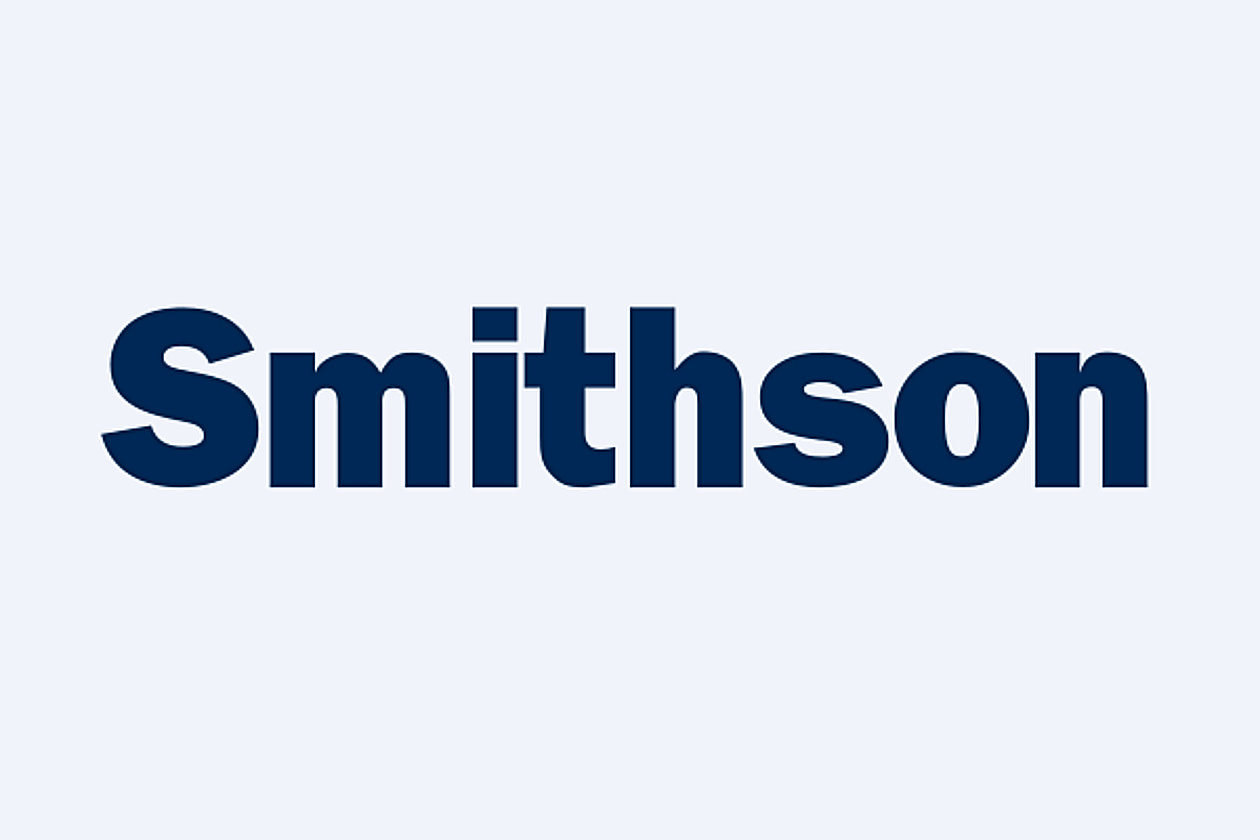Simon Barnard hunts for quality small and medium-sized companies around the globe
He uses the same investment process as other Fundsmith strategies - buy good companies, don’t overpay, and do nothing
The trust has outperformed the sector average since launch but failed to keep with the MSCI World SMID Cap Index
How it fits in a portfolio
Smithson Investment Trust aims to grow capital over the long term by investing in small and medium-sized companies. These companies have potential to outperform larger, more established businesses but they carry more risk. The manager invests in high-quality companies, mostly from developed markets.
The trust could work well alongside ‘value’ trusts investing in unloved companies or trusts focused on larger businesses. More broadly it could be used to diversify an adventurous long-term investment portfolio focused on growth. Investors in closed-ended funds should be aware the trust can trade at a discount or premium to Net Asset Value (NAV).
Manager
Simon Barnard joined Fundsmith in September 2017 and has managed the trust since launch in October 2018. After graduating from Cambridge University, Barnard joined Goldman Sachs Asset Management in 2003 as a research analyst before moving into portfolio management.
Terry Smith, the founder of Fundsmith and manager of the flagship Fundsmith Equity fund, is also on hand to provide advice and support where required.
Process
Smithson Investment Trust uses a buy-and-hold approach, which is similar to the open-ended Fundsmith Equity fund. The main difference is the size of companies they invest in – Smithson invests in smaller businesses, those between £500m and £15bn in size. The average size is currently £7.3bn. The manager doesn’t have the flexibility to invest in unquoted companies, which are not listed on a stock market, unlike most trusts which can. However, he can borrow to invest, known as ‘gearing’. While this isn’t currently used, if this were to change in future it would increase risk.
Barnard and his team hunt for high-quality businesses which can efficiently make profits and dominate within their market niche. Companies with intangible assets are favoured, such as brand power, intellectual property, or a product or service that customers can’t do without and would struggle to replace. Long-term sustainable growth is key, which is why the team tends to avoid companies with lots of debt, which can be common in sectors such as banks and real estate. The manager also tends to avoid more economically sensitive sectors, such as financials, utilities, resources and transport.
The trust invests in 25-40 companies, and it currently holds 33. This is a high-conviction approach which means each holding can have a significant impact on performance, both positively and negatively, which increases risk.
At the end of April 2024, the trust invested mostly in developed markets with 50% held in the US. Barnard also finds plenty of ideas in European countries such as the UK, Italy and Germany. In terms of sectors, 35% of the trust was invested in industrial companies, with a further 23% in technology. The rest is mainly made up of healthcare and consumer companies.
Barnard is mindful of valuation and only buys companies he believes he can buy at a fair price. Once invested, he simply ‘does nothing’. As a long-term investor his ideal holding period is forever which means changes are made infrequently. That said, he may sell a holding if the company’s share price no longer looks good value compared with its prospects, the management team makes poor decisions, or he finds a better idea elsewhere.
During 2024, Barnard added seven new companies to the trust. This is the highest number of new ideas Barnard has added in recent years and reflects the opportunities that have presented themselves. This includes US hotel company Choice Hotels who are best known for their Quality Inn and Radisson brands. Barnard believes it is a high-quality company with a strong track record of steady profitability. Italian IT consulting company Reply was also added to the trust. Reply help businesses with adapting to new technology. They have seen an increase in demand as more companies try and integrate AI technology into their systems.
To buy these new investments Barnard sold a number of companies as well. Australian technology company TechnologyOne was sold after strong performance. Barnard now believes that the company has become too expensive so therefore decided to sell and move on to better opportunities. This is similar to US cybersecurity company Fortinet which had also performed extremely well but was sold to move onto better opportunities. Barnard also sold US industrial company Cognex. Barnard believes that the slowdown in China and in the auto industry has been a headwind for the company so therefore decided to move on.
Get leading investment trust commentary, performance analysis and insight from HL's expert research team.
Culture
Fundsmith is a boutique fund group with offices in Mauritius, London, and the US. It was founded by Terry Smith in 2010 with the launch of Fundsmith Equity. It’s since expanded to include a small range of funds and investment trusts, most of which are run along the same lines. This dedication to the founding investment philosophy is attractive.
The business is employee-owned, with Smith owning the largest stake, and managers all investing significantly in the funds. This means both the business and the funds are run with the long term in mind, and managers’ interests are aligned with investors.
ESG Integration
The team at Fundsmith aims to invest in high quality companies that are in control of their own destiny with the potential to generate a high return on capital. This generally discounts companies in areas like oil & gas production, mining, airlines, biotechnology and banks, but the flagship Fundsmith Equity fund does not have any specific exclusions, and it does invest in tobacco.
Fundsmith offers a Sustainable fund, which does exclude companies in the following areas: aerospace & defence, metals & mining, oil, gas and consumable fuels, tobacco, gas and electric utilities, brewers, distillers & vintners and casinos & gaming.
In 2020, the firm formed a Stewardship & Sustainability Committee to centralise discussions around its stewardship and responsible investment-related policies, processes, and activities. While we feel Fundsmith has well thought out positions on many ESG topics, transparency on its ESG-related activities could be improved.
Cost
The ongoing annual charge over the trust’s financial year to 31 December 2024 was 0.86% a marginal decrease from last year where the annual charge was 0.87%. Investors should refer to the latest annual reports and accounts, and Key Information Document for details of the risks and charging structure. If held in a SIPP or ISA the HL platform charge of 0.45% (capped at £200 for a SIPP and £45 for an ISA) per annum also applies. The platform charge doesn’t apply if the trust is held in a Fund and Share Account or Junior ISA.
Investment trusts trade like shares, both a buy and sell instruction will be subject to the HL share dealing charges.
Performance
Since launch in October 2018, the trust has performed better than the average global smaller company investment trust. Over this period its share price has grown 35.87%* vs 16.81% for the AIC sector average. However, it’s lagged its benchmark, the MSCI World SMID Cap Index, which has returned 58.35%. The trust’s Net Asset Value (NAV) rose 60.40% though, meaning that the underperformance is due to an increase in the discount to NAV over this period. Remember past performance is not a guide to the future.
Over the trust’s latest financial year to the end of 2024 the trust underperformed both the AIC sector average, and its benchmark. The trust’s share price rose 4.88% vs 12.98% for the sector average and 12.05% for the MSCI World SMID Cap Index. The trust NAV rose 2.11%.
In terms of company’s that didn’t do well over the trust’s financial year, Swiss banking software company Temenos was one of the largest detractors. Barnard believes profits will continue to struggle in the future following a poorly managed transition to a new business model. Barnard decided to sell the company in the first half of 2024. UK industrial company Spirax Group was also a large detractor as global industrial production continues to struggle. Other notable detractors was Australian pizza franchise Dominos and UK drink company Fevertree.
Not every company performed poorly though. US cyber security company Fortinet was the best contributor to performance as their results surprised investors leading to a sharp rise in share price. New Zealand health care company Fisher & Paykel healthcare also performed well as demand recovered after covid. Swedish industrial company Addtech also did well. Their strategy of acquiring smaller businesses cheaply continues to work well.
At the time of writing the trust trades on a -10.23% discount. Over the last 12 months on average, the trust has traded on a -11.25% discount. Since inception, on average, the trust has traded on a discount of -3.30%.
Annual percentage growth
30/04/2020 to 30/04/2021 | 30/04/2021 to 30/04/2022 | 30/04/2022 to 30/04/2023 | 30/04/2023 to 30/04/2024 | 30/04/2024 to 30/04/2025 | |
|---|---|---|---|---|---|
Smithson Investment Trust | 35.27% | -18.74% | -0.28% | -3.90% | 4.25% |
MSCI World SMID | 45.97% | -0.50% | -1.15% | 12.26% | 1.60% |
AIC Investment Trust - Global Smaller Companies | 92.96% | -19.60% | -11.06% | 8.46% | 0.15% |


